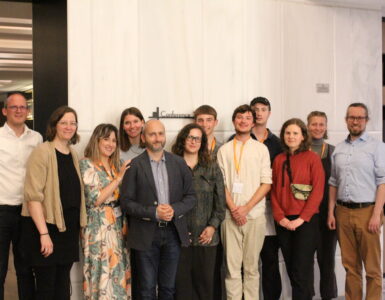The causes and consequences of climate change are unequally distributed. How this mechanism drives crises and how more justice could be created.
The sun shines relentlessly, the sky is clearer than the water on the Adriatic coast. Yellow lawns. Exhausted, red eyes. Unflagging heat. Tack, Tack, Tack – isolated lawn sprinklers frantically try to save the last green in the garden. The plants in the fields hang their heads in exhaustion. One almost feels sorry for them. Nature suffers. What sounds like the start of some disaster movie has been reality for years. The European summer months mean dry spells. Climate change is here. With full force. Melting glaciers and suffering polar bears were too incorrect. But slowly you can imagine what a rise in the global average temperature means.
However, in many places it is not just a hot summer. The global south in particular is being hit by famine, severe flooding and prolonged droughts. More specifically: Last year, a third of Pakistan was under water; in Somalia, millions of people are suffering from hunger after five consecutive droughts; and in the Sahel region of Africa, more than 30 million people are in urgent need of humanitarian aid. These countries have something in common: they are particularly hard hit by the consequences of the climate crisis and at the same time have hardly any share in global emissions. For example, just under 2.2% of the world’s population lives in the named Sahel, yet they contribute only 0.13% of the planet’s CO2 emissions.1 By comparison, the U.S. accounts for 4% of the world’s population, but emits nearly 13%.2 This shows that the benefits of climate-damaging behavior and the price paid for it are unevenly distributed. While Europe can still get by with simple protective measures in the event of a rise in sea level, Bangladesh is already completely flooded.3
So: some suffer, others benefit. Nevertheless, countries in the Western world must also recognize that this logic only works to a limited extent. The consequences of global warming will be felt even more strongly in Europe, more people will flee from the hostile conditions, and global supply shortages are just some of the consequences that experts have been warning about for decades.
There are enough reasons to take climate change seriously. Concrete approaches, international conferences and agreements between countries already exist – only consistent implementation has been missing so far. The next UN climate conference will take place in just under four months. It will probably take another 6 years before the average global temperature rises by 1.5 degrees.4 So: the clock is ticking. Faster for some, a little slower for others.
1 https://www.rescue.org/de/artikel/5-laender-die-besonders-stark-vom-klimawandel-betroffen-sind
2 https://www.co2online.de/klima-schuetzen/klimawandel/co2-ausstoss-der-laender/
3 https://www.nationalgeographic.de/umwelt/bangladesch-vor-der-grossen-flut
4 https://taz.de/Neue-CO2-Uhr-auf-tazde/!5810221/









Add comment